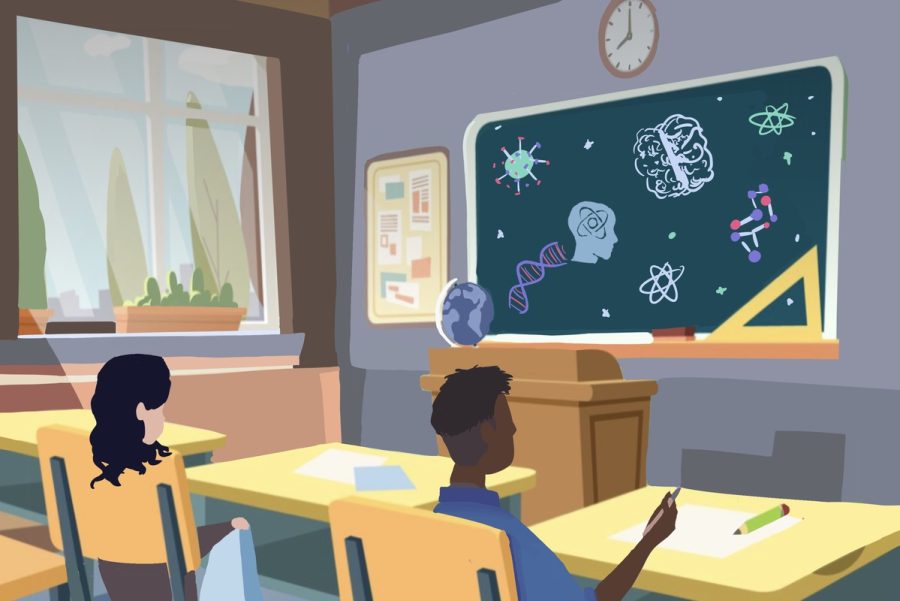Course registration needs to improve for neuroscience students
July 7, 2022
It’s 7:59 a.m., and you’re counting the seconds until it’s 8 o’clock on the dot. You spent the last few days planning next semester’s schedule, and you’re not letting it go to waste. Course registration is a brutal arena where every second counts. The last thing you want is the red bolded words: “The class requested is closed.”
These five words could potentially throw your whole degree plan off track.
This nightmare became a reality for neuroscience majors during the last registration period. Neural Systems II (NEU 335) is a prerequisite course needed for many other neuroscience courses offered by UT. But before many students could even register, the class was already filled.
The neuroscience department should reserve more seats in prerequisite courses, such as NEU 335, and offer more sections during the year.
Neuroscience junior Dez Huston wasn’t able to register for NEU 335. Although he registered for other classes, for the time being, Huston is worried about the implications of what could happen if he can’t register for NEU 335 again in the spring.
“It’s really gonna depend on (getting into NEU 335) maybe next semester,” Huston said. “But if not, I’m basically going to be held back in my neuro track. It’d be very unfortunate timing to have to (add) an entire semester (to my degree plan) ‘cause of that.”
It’s disappointing that students have to worry about derailing their graduation plan because of a lack of seats in one of their prerequisite courses, especially a prerequisite needed for many upper-division neuroscience courses.
Given the importance of the course, it’s shocking that there’s only one section offered in the fall. The neuroscience department should open more than one section per semester and reserve more seats for neuroscience majors so they have priority access to a course they need to move up in their major.
“(Reserving more seats) sounds super realistic, especially (with) a course like this, where it seems very major-specific,” Huston said. “At the very least, neuro majors should have it reserved to a certain extent.”
By increasing access to prerequisite courses, the neuroscience department would stop being an obstacle for students trying to stay on their planned graduation date.
Christine Sinatra, Director of Communications for the College of Natural Sciences, offered a few standard solutions on what students could do if they can’t register for NEU 335.
“Students on the waitlist will be contacted first if openings come up,” Sinatra said in an email. “Students have been advised to enroll in other upper-division courses … They will have (other) opportunities, such as during the add-drop period … should an opening become available.”
While these are all options, they still don’t give students enough autonomy over their schedules. These suggestions require students to wait until a potential spot opens up. Rather than preventing the problem, current policies seem only to address it after it happens.
Students deserve to feel secure in their graduation track without fear of being held back for reasons outside their control.
Su is a neuroscience junior from Dallas, Texas.




